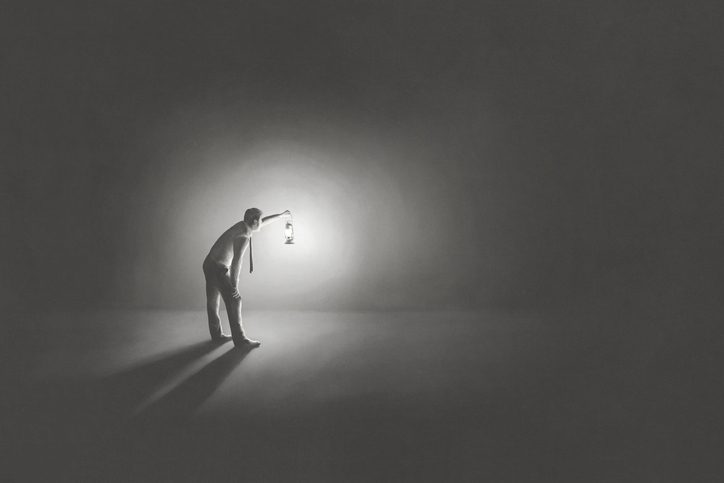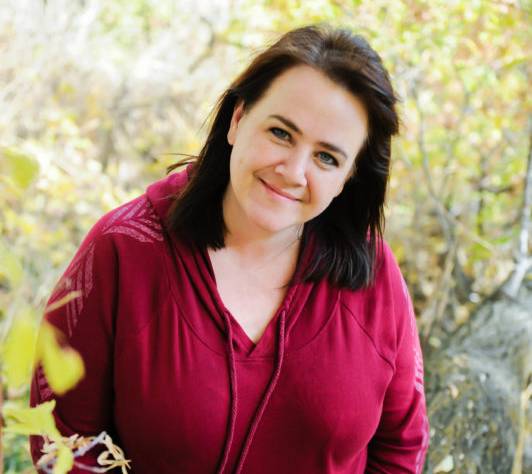I find the topic of doubt does not come up in conversations very readily. It made me wonder about the nature of doubt and why we feel a bit uncomfortable confessing doubt. Doubt means “a feeling of uncertainty or lack of conviction.”
Uncertainty is deeply uncomfortable, and no one wants to admit a lack of conviction. But there is value in doubt. There is value in uncertainty and being unsure. There is also value in being open about it and sharing your doubt with others. Too much certainty, especially in a group setting activates our tribal fears. The fear of being ostracized, left out, ignored, or silenced keep us from expressing doubt but without doubt, you cannot have meaningful debate and explore possibilities. In short, doubt keeps you open minded. Of course, if you’re overwhelmed by doubt and it makes you cynical and jaded then, like anything, you can be engaging in too much of a good thing. If you are a doubtful person, who second guesses, is always sitting on the fence, or cannot decide; these are symptoms of fear, fear using doubt as an excuse to avoid action or gaining clarity. Doubt can be crippling if it is used to avoid and sabotage and can be a signal of a missing inner compass and selfhood.
When is doubt a good thing? How can I use to enable me rather than disable me? Here is a fact. There is a lot more of what we don’t know, than what we do know. Think of any situation and you will find that there is always a lot of information you don’t know. Let’s say you go to a party. You have a general idea of what happened at the party but there was a lot about the party you knew nothing about. Even when you think you know what happened, there is always room for error and there is always missing information. Doubt makes you skeptical about what you think you know, and it encourages you to explore what you don’t know.
Doubt expands your thinking and allows room for questioning, examination, shifting perspectives and deepening understanding. But you must develop the ability to be uncomfortable and flexible. Doubt fosters this skillset. If you have an extreme personality, someone who thinks in terms of black and white, for example, doubt is a mitigating influence to bring expansion and moderation. Doubt prevents you from holding on to ideas too tightly. We believe our assumptions and don’t question them enough. Introducing doubt into your day-to-day interactions is a very powerful tool, especially if you tend to be the type of person who is ultra-sure about things. It is understandable to want to know and be sure of our ideas and beliefs, to be confident about our decisions but if we become too attached to our “knowledge” (which is always evolving as we learn) we can become blinded, narrow minded and stuck. Absolute certainty bumps up against undeniable truth and this can create cognitive dissonance as we search for evidence and confirmation for our certainties. Doubt invites humility and encourages the “I don’t know” mind that is so essential to development, growth, innovation, and progress. Doubt asks us to look deeper and longer. More self-confidence is required to express doubt and uncertainty than is required to be right.
One of the most powerful uses of doubt is the way it invites questions. Whenever you are struggling with something look at the part of your thinking that is unquestioned. The ideas and beliefs you assume are accurate. Bring doubt into your self-examination by questioning the absolutism of those ideas. Some examples of questioning that has helped me:
- What don’t I know about. . .?
- What if I did/didn’t believe. . .?
- How do I define. . .?
- Where does that feeling/idea originate?
- When have I felt this way in the past?
- What would it take for me to act against my values?
- Who says?
- Can you know that’s true?
Notice in the list of questions that there are no “why” questions. I have found that “why” questions are often unanswerable. I avoid asking why questions if I can reframe it another way.
For example: Why do I feel angry all the time?
That is an unanswerable question. No one has the absolute answer to that and so it leads you nowhere, makes you feel frustrated and then you fall back onto the prescribed truths that avoid this kind of confusion and pointlessness. Ex. (I am an angry person, it’s in my nature.)
Better questions: What triggers the anger? Is it always the same sort of thing?
Notice how your mind immediately gets to work when it is given an answerable question. This question can lead to other questions. Use doubt to prevent yourself from falling into the trap of certainty. I have found doubt and skepticism to be foundation tools in creative work, problem solving, communication, managing fear and anxiety, dealing with depression, and overcoming trauma. I hope you find new value and appreciation for doubts.

